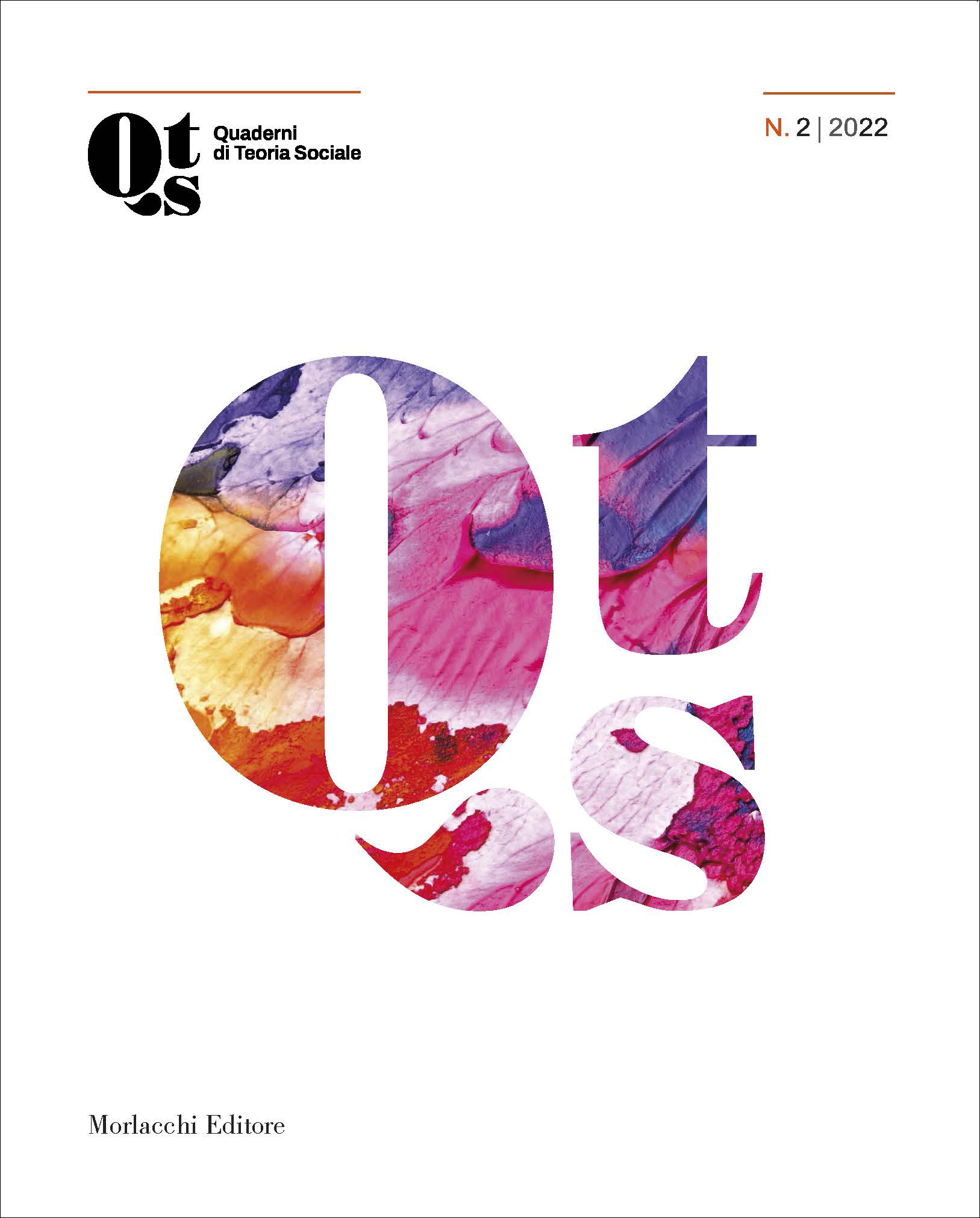La polarizzazione ideologica negli Stati Uniti, fra americanismo e guerre culturali
DOI:
https://doi.org/10.57611/qts.v1i2.183Parole chiave:
Polarization, Ideology, Americanism, CrisisAbstract
The purpose of this contribution is to focus on the origins and developments of the American debate on the phenomenon of political and ideological polarization, highlighting the role that intellectual, political and economic elites have played in its emergence and definition, as well as its connection to the ideological matrix of nationalism, whether progressive or conservative. It is therefore intended to reiterate the centrality of ideology in determining American political conflict. To this end, Freeden’s definition of nationalism as thin ideology is considered, which helps us explain the different matrices of the two Americanisms. At the same time, the social basis of polarization is highlighted, through which we interpret the phenomenon of ‘mass polarization’ that characterizes the American political system. The conclusions ask how much polarization is sustainable for a democratic country, and whether we are crossing that threshold of hyper-partisanship that the American political system has experienced before.
Riferimenti bibliografici
Abramowitz, A.
, The Great Alignment: Race, Party transformation, and The Rise of Donald Trump, Yale University Press, New Haven.
Abramowitz, A., McCoy, J.
, United States: Radical Resentment, Negative Partisanship, and Polarization in Trump’s, The Annals of American Accademy, 681, pp. 137-156.
Alinsky, S.
, Radicali all’azione! Organizzare i senza-potere, in A. Coppola, M. Diletti (a cura di), Edizioni dell’asino, Roma.
Anderson, B.
, Comunità immaginate: Origini e fortuna dei nazionalismi, Laterza, Bari.
Bell, D.
, The End of Ideology, Harvard University Press, Cambridge.
Boyle, K.
, The Shattering. America in the 1960s, Norton & Co, New York.
Bonikowski, B., DiMaggio, P.
, Varieties of American Popular Nationalism, American Sociological Review, 81, pp. 949-980.
Bonikowski, B., Feinstein, Y., Bock, S.
, The Partisan Sorting of “America”: How Nationalist Cleaveges Shaped the 2016 U.S. Presidential Election, American Journal of Sociology, 127, 2, pp. 492 – 561.
Borgognone, G.
, Le idee politiche degli Stati Uniti dalle origini all’era Trump, Le Monnier, Firenze.
Brownstein, R.
, The Second Civil War: How Extreme Partisanship Has Paralyzed Washington and Polarized America, Penguin Putnam Inc, London.
Diletti, M.
, La guerra delle idee. I think tank e la genesi dell’intellighenzia conservatrice americana, Contemporanea, 10, 1, pp. 25-52.
, I think tank. La fabbrica delle idee in America e in Europa, il Mulino, Bologna.
Easton, D.
, A Systems Analysis of Political Life, John Wiley, New York.
Fiorina, M., Abrams, S.
, Disconnect: The breakdown of Representation in American Politics, University of Oklahoma Press, Norman.
Freeden, M.
, Is Nationalism a Distinct Ideology?, Political Studies, 46, 4, pp. 748-765.
Frey, W.
, Exit polls show both familiar and new voting blocs sealed Biden’s win, Report Brooking Institution, https://www.brookings.edu/research/2020-exit-polls-show-a-scrambling-of-democrats-and-republicans-traditional-bases/.
Hartz, L.
, The Liberal Tradition in America, Harcourt Brace & World Co, San Diego.
Hemmer, N.
, Partisans: The Conservative Revolutionaries Who Remade American Politics in the 1990s, Basic Books, New York.
Hunter, J.
, Culture Wars: The Struggle to define America, Basic Book, New York.
Kazin, M.
, America’s Never- Ending Culture War, New York Times, 24 Agosto.
Kazin, M., McCartin, J. (a cura di)
, Americanism: New Perspectives on the History of an Ideal, University of North Carolina Press, Chapel Hill.
Klein, E.
, Why We’re Polarized, Profile Books, London.
Kirkpatrick, J.
, Politics and The New Class, in The New Class, Bruce-Briggs, B. (a cura di), McGraw-Hill, New York.
Lowi, T. J.
, La scienza delle politiche, il Mulino, Bologna.
Mannheim, K.
, Ideologia e utopia, il Mulino, Bologna (ed. or. 1929).
McCarty, N.
, Polarization: What Everyone Needs to Know, Oxford University Press, Oxford.
Merriam, E. D.
, A History of American Political Theories, McMillan, New York.
Mudde, C.
, Populist radical right parties in Europe, Cambridge University Press, Cambridge
Palano, D.
, Bubble Democracy. La fine del pubblico e la nuova polarizzazione, Scholè, Brescia.
Regalia, M.
, Polarizzazione, in Dizionario di politica, N. Bobbio, N. Matteucci, G. Pasquino (a cura di), DeAgostini, Novara.
Stephanson, A.
, Destino manifesto, Feltrinelli, Milano
Testi, A.
, Riprendersi l’America: il patriottismo americano dopo l’11 settembre, in R. Baritono, E. Vezzosi (a cura di), Oltre il secolo americano? Gli Stati Uniti prima e dopo l’11 settembre, Carocci, Roma.
, La formazione degli Stati Uniti, il Mulino, Bologna.
Theriault, S.
, Party Polarization in Congress, Cambridge University Press, New York.
Walzer, M.
, Che cosa significa essere americani, in N. Urbinati (a cura di), Marsilio, Venezia (ed. or. 1992).
##submission.downloads##
Pubblicato
Fascicolo
Sezione
Licenza
Copyright (c) 2022 Mattia Diletti, Melissa Mongiardo

Questo lavoro è fornito con la licenza Creative Commons Attribuzione - Non commerciale 4.0 Internazionale.
<a rel="license" href="http://creativecommons.org/licenses/by-nc/4.0/"><img alt="Licenza Creative Commons" style="border-width:0" src="https://i.creativecommons.org/l/by-nc/4.0/88x31.png" /></a><br />Quest'opera è distribuita con Licenza <a rel="license" href="http://creativecommons.org/licenses/by-nc/4.0/">Creative Commons Attribuzione - Non commerciale 4.0 Internazionale</a>.






